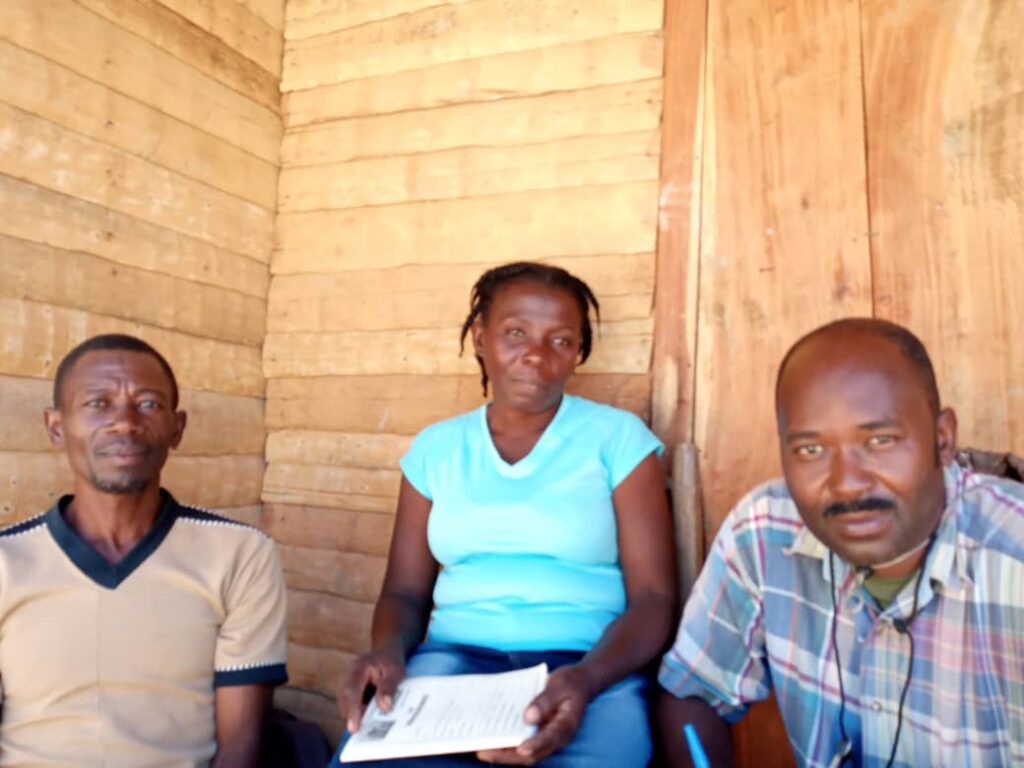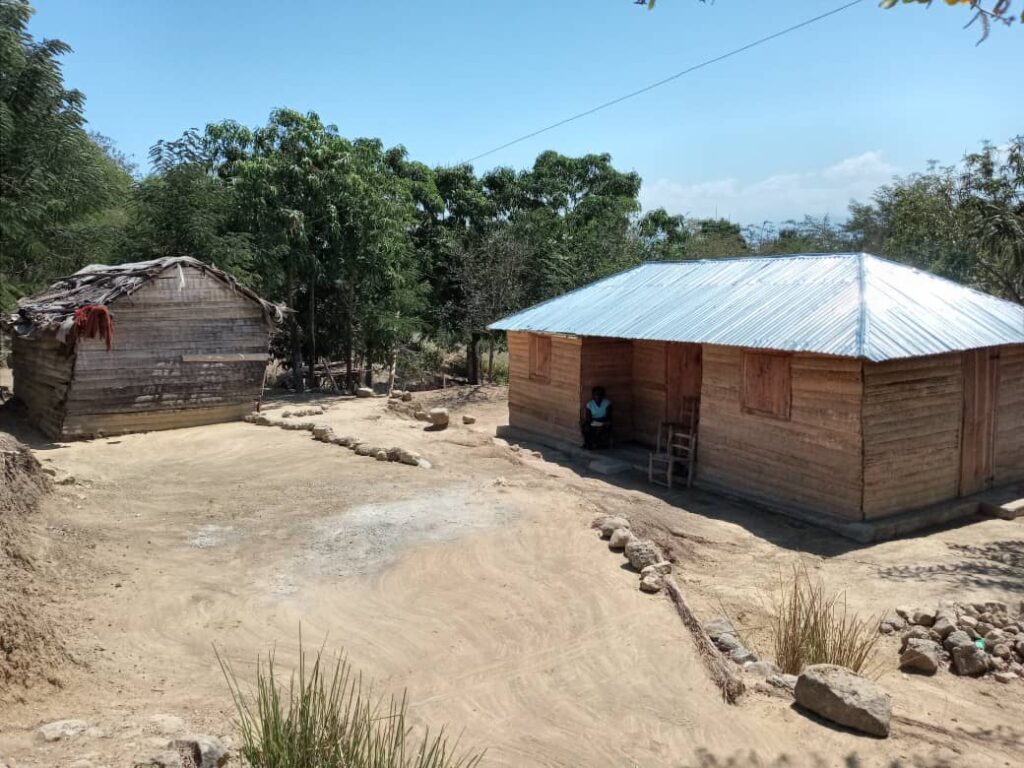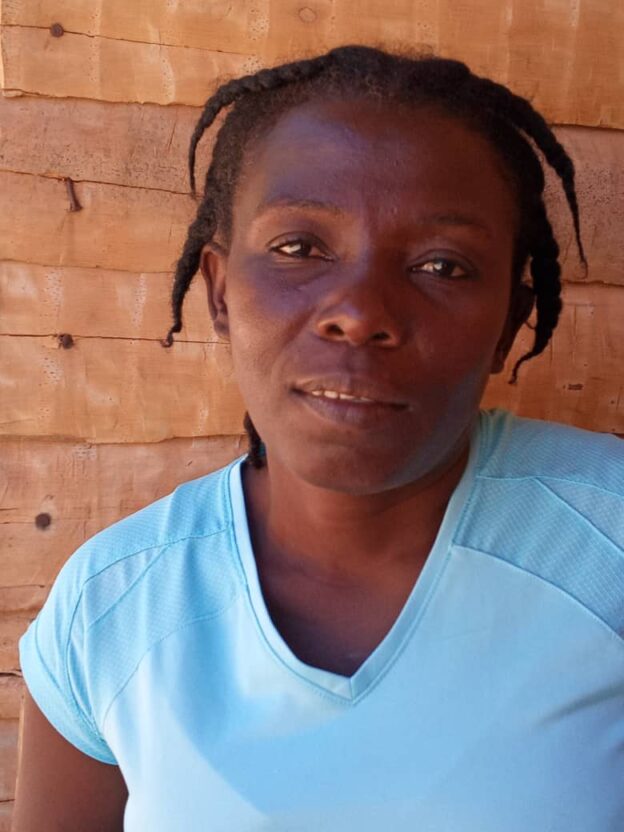Rosena Jean Baptiste lives in Wo Anana — or Upper Pineapple — with her partner and their three children. When she joined the program a little over a year ago, the couple was really struggling. “There were days when I had laundry to wash but I couldn’t afford a little piece of soap.”
They got by by working in their neighbors’ fields and hiring themselves out to turn their neighbors’ trees into charcoal. They would buy a tree for a preset number of sacks of charcoal. They’d then cut down and burn the tree. They would sell any charcoal above the agreed-upon amount to the same neighbor, who could then sell it to a wholesaler.
Rosena chose goats and agriculture as her two enterprises, and she has done well with both. But the real key to the transformation in her life has been her use of the cash stipend she received from Fonkoze. For their first 24 weeks in the program, CLM give members 350 gourds each week. That’s worth a little more than $4.60 these days, and it’s instructive to see what Rosena has done with it.
Of the 350 gourds, she actually received 200 each week. The other 150 went into her sòl, her savings club. She and the other members of her sòl take turns collecting the whole pot.
She sometimes spent the 200 or a part of it on food for her family or other necessities, but she wasn’t willing to spend all of it that way. “There are things I used to see in other people’s hands, and I wanted my own.” So she used as much as she could to buy chickens. She eventually bought twelve, and has been keeping them in her yard with success.

Early on, she and her case manager, Manno, had a serious conversation. She told him that she had always wanted to have her own small commerce, but she couldn’t because she didn’t have enough money. Commerce, she said, takes a lot of money. “Manno told me that commerce starts small and becomes big.”
So the first time it was her turn to take the money from her savings group, she used the 1750 gourds to buy bread, crackers, and sugar. The second time her turn came around, she added another 1750 gourds to her investment. She now has almost 8000 in her business, selling out of her home and at two local markets. She sees the difference it makes in her family’s life now that she has activity in the market twice each week. “Now I can buy all the soap and detergent I need, and we eat well every day.”
For Rosena, the regular cash has been important. When she hears people say that 350 gourds is not enough money to be useful, she says, “Maybe they don’t know how to manage money.”
But she doesn’t think it’s only the money. She doesn’t think she would have succeeded without Manno’s advice. “I can make more progress with Manno because he explains things that I didn’t understand. I didn’t know anything about running a commerce.”
She and her partner have also kept up their other activities. They still make charcoal, and the investment from CLM has increased their farming. They’ve been able to use these activities, together with Rosena’s commerce, to buy a horse and to complete the construction of their new home. They hope that their spring harvest, combined with the payout from Rosena’s savings and loan association, will enable them to buy a cow by May.

